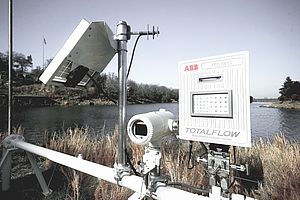The newly launched ABB Ability Cyber Security Workplace (CSWP) enhances the protection of critical industrial infrastructure by consolidating both ABB and third-party security solutions into one simple, all-encompassing digital platform. By making cyber security information more accessible and easier to manage, engineers and operators can quickly identify and remediate issues, reducing exposure to risk. According to research provider Cybersecurity Ventures, global cybercrime costs from theft of intellectual property, disrupted operations and damage to physical assets are expected to grow by 15 percent annually over the next five years (source: https://cybersecurityventures.com/cybercrime-damages-6-trillion-by-2021/). This could represent an approximate annual cost to commerce of $10.5 trillion by 2025, equivalent to 50 percent of US GDP, as worldbank data projects https://data.worldbank.org/indicator/NY.GDP.MKTP.CD?locations=US.
ABB’s new solution helps address this growing threat and more efficiently protect operational assets by making the maintenance of security controls a key part of daily operations and summarizing information into a single view. Many of the existing cyber security tools in the industry are siloed, forcing operators to pivot from one system to another to understand basic status information, perform maintenance tasks or respond to an incident. Information is also often presented in a way that is too complex for those who are not cyber security specialists or familiar with a specific application, which can result in security gaps and risk to the asset environment.
Closing the workforce gap
“ABB’s CSWP solution overcomes these challenges by simplifying security control status information and enabling remote access, making it possible for ABB’s technical domain experts to connect directly to their environment when additional support is needed,” said Matthew Virostek, product owner for CSWP at ABB. “Operational technology and information technology networks are also isolated so that elements of risk are identified faster, leading to more informed, data-led decisions that help optimize performance and resource use, and hence contribute to driving sustainability goals.”
According to the latest report by the World Economic Forum (WEF), the global economy is facing a cyber security workforce gap of more than 2.7 million professionals, which although steadily decreasing, is still too large. According to the 2021 (ISC) Cybersecurity Workforce Study, the ranks of cyber security professionals need to grow by 65 percent to effectively defend critical industrial assets against the rising number of ransomware attacks.



























